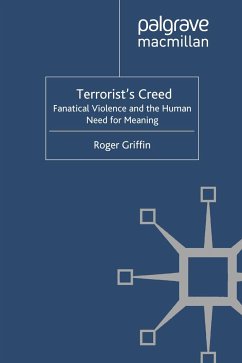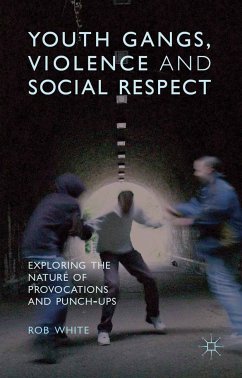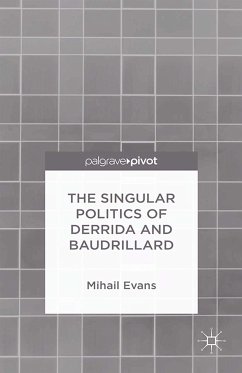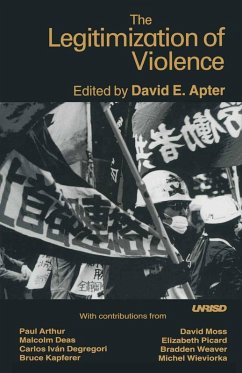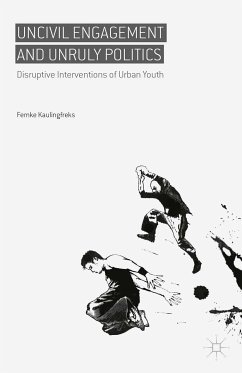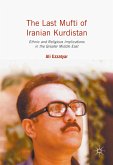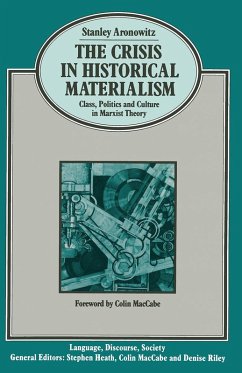Dieser Download kann aus rechtlichen Gründen nur mit Rechnungsadresse in A, B, BG, CY, CZ, D, DK, EW, E, FIN, F, GR, HR, H, IRL, I, LT, L, LR, M, NL, PL, P, R, S, SLO, SK ausgeliefert werden.
'...an original, insightful, and innovative contribution to the literature on terrorism'
- Jeffrey M. Bale, Monterey Institute of International Studies
'...among the most original and sweeping theoretical works to come from the terrorism studies genre in the last decade.'
- Jeffrey B. Cozzens, White Mountain Research LLC
'It is rare to find a work of such originality in a field like terrorism studies, which is dominated either by journalistic cliches or a crudely logistical analysis. Griffin locates terrorism in a richly conceived context that is ethical and epistemological as much as it is political.'
- Dr. Faisal Devji, University of Oxford
'In an analysis that is at once philosophical, psychological, political, and historical, Roger Griffin brings to the study of modern terrorism the same breadth of knowledge, aquaintance with specialized literature, and empathic insight he brought to his study of Modernism and Fascism. This new book builds upon the foundation of Griffin's study of modernism and the responses to it which determined the epochal nature of the twentieth century. For him, "terrorism" is a product of a fear of loss of meaning in the world combined with the conviction that the world must be remade if meaning is to be saved. Thus, terror is a response to a historical situation that regularly recurs, but modern terrorism can be understood only within the context of the threats to meaning posed by modernism itself. The book has a practical aspect as well as a theoretical one. It tries to provide insight into the "inside" of modern terrorism - what motivates, sustains, and reproduces "the terrorist."'
- Hayden White, Professor Emeritus of Historical Studies, University of California
...both innovative and original...' - The Bookseller
'Since 9/11 there have been any number of detailed studies of terrorist groups, many of them by counter-terrorism professionals or reporters specialising in a particular region. Meanwhile, a small band of academics have tried to step back from the present so as to metaphysically locate what all or most terrorists are seeking to achieve, whether they realise it or not. Roger Griffin is a well-known expert on political violence and European Fascism. He brings a great deal of conceptual clarity and prodigious learning to a subject where emotion and prejudice are often uppermost. This is a valuable contribution to understanding the terrorism phenomenon"'
- Michael Burleigh, author of Blood and Rage: A Cultural History of Terrorism
'...a compelling historical and political overview of ideologically driven terrorist violence....Any psychologist interested in terrorism and violence should read Griffin's book.' - The Psychologist

